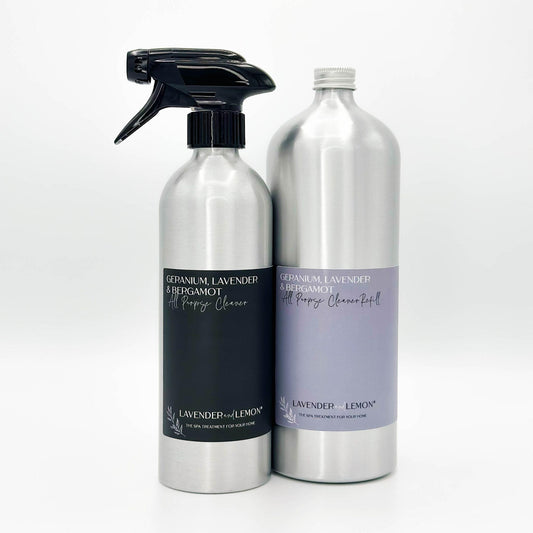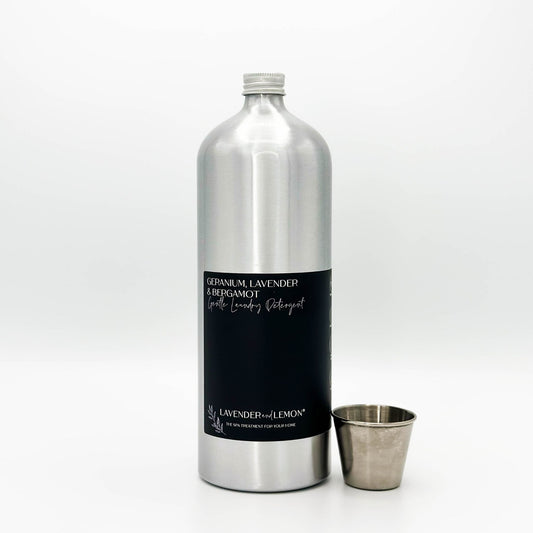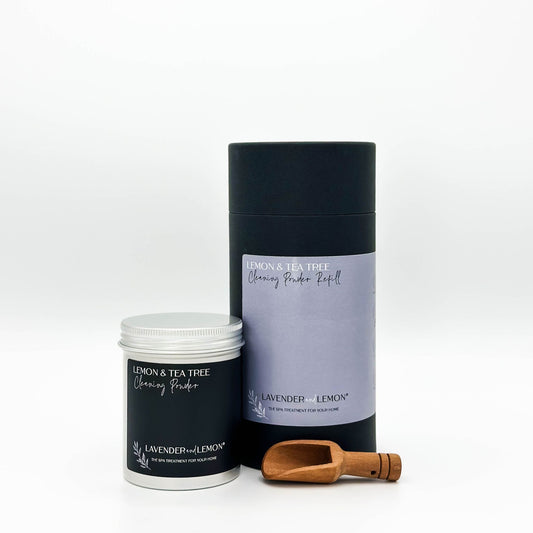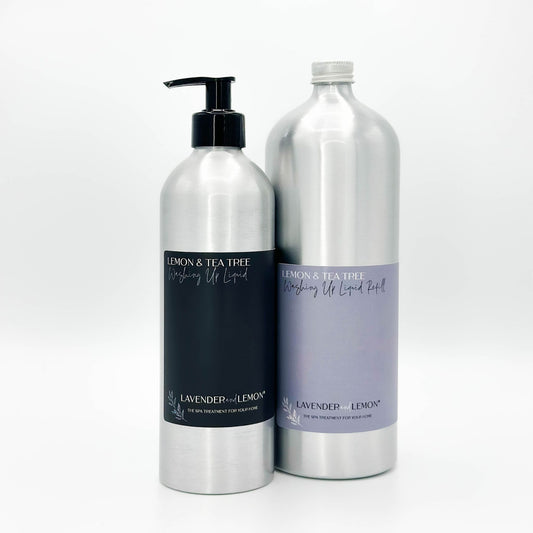Free Shipping Over £35
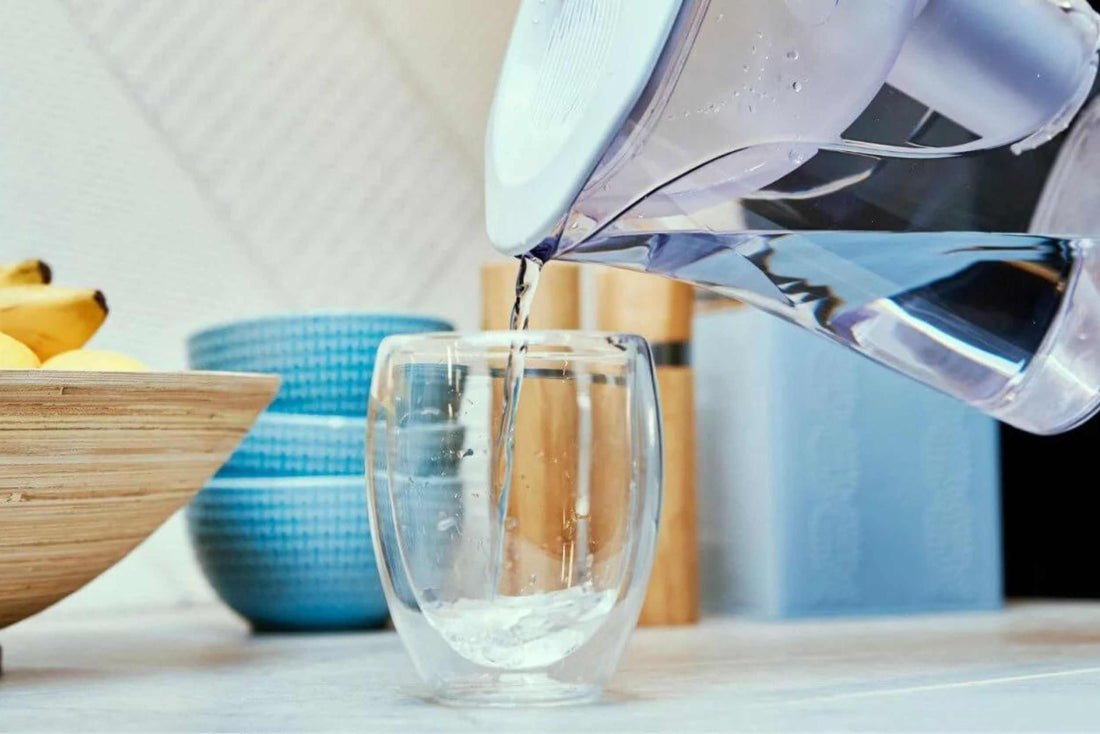
How to Reduce Toxic Chemicals In Everyday Life
Share
We're bombarded daily with news about environmental toxins – from the food we eat, the air we breathe, to the products we use - it’s easy to feel like we’re walking through a minefield of toxic chemicals in everyday life. While taking proactive steps to reduce our exposure is commendable, it's equally important to maintain a balanced perspective, ensuring that we don't succumb to unnecessary anxiety or feel overwhelmed by the enormity of the task at hand. As we navigate this maze, we must remember that while we should take steps to protect ourselves and our planet, finding balance is equally crucial. Because living in perpetual worry…that's not healthy either.
The Impacts of Environmental Toxins
Environmental toxins have a broad range of effects on our health and well-being. These toxic chemicals can stem from pesticides in our foods, pollutants in the air, or chemicals in our household products. According to the World Health Organization (WHO) 1, these harmful chemicals can contribute to diseases and conditions ranging from respiratory ailments to certain cancers. Hence, our desire to reduce our exposure is warranted and essential. However, there's a fine line between caution and paranoia. While it's crucial to recognise the dangers of environmental toxins, it's equally essential to ensure that our reactions are measured and balanced.
Why Not to Stress Over What We Can't Control
Environmental toxins are, unfortunately, an inevitable part of modern life. While we can manage many of these, some are beyond our immediate control. According to the Environment Agency, many environmental toxins are present in everyday life. 2 However, it's crucial to remember that our bodies are incredible machines built to handle and process a range of external factors. Stressing over toxins we can't control can be counterproductive and even detrimental. Research from Harvard Health has shown that prolonged stress can adversely affect our health, ironically increasing our susceptibility to various ailments. 3
Why the Gradual Swap is Beneficial
While it's commendable to aim for a toxic-free lifestyle, it's not possible, practical or financially feasible to discard everything and start from scratch. We ensure a more sustainable, long-term transition to a healthier lifestyle by swapping out what we can as we go. Each positive step compounds over time, providing substantial benefits without the initial overwhelm. By not pressuring ourselves to make large-scale changes immediately, we:
Avoid Overwhelm: Making too many changes at once can be overwhelming, leading to burnout or giving up altogether.
Save Financially: Gradual swaps can be more budget-friendly. Instead of incurring a significant expense simultaneously, you can spread the costs over time.
Learn and Adapt: A slower approach allows time to research, learn, and make informed decisions, ensuring that each swap is effective and aligns with your goals.
Non-Toxic Swaps You Can Make Now & In The Future
Natural Cleaning Solutions: Swap chemical-laden cleaning products with natural alternatives like baking soda, vinegar, or lemon juice. These eco-friendly cleaners can be just as effective without the harmful toxins. If DIY isn’t your thing, look for non-toxic, planet-friendly cleaners.
Organic Foods: Prioritize buying organic for the Dirty Dozen 4 - the twelve fruits and vegetables that have the highest pesticide residues.

Eco-friendly Beauty: Replace conventional skincare and makeup products with organic or eco-friendly alternatives. Brands like Bloomtown or Awake Organics offer toxin-free beauty solutions.
Ditch Synthetic Fragrance: While that vanilla-scented candle or the floral room spray may seem harmless, many synthetic fragrances contain phthalates, which can disrupt the endocrine system. Instead, opt for natural scents, like essential oils, or simply open a window to let in fresh air.
Refillable Water Bottles: Instead of single-use plastics, invest in a quality stainless steel water bottle. Not only does this reduce toxin exposure from plastic, but it also promotes environmental sustainability.
Ditch the Plastic: Replace plastic containers with glass or stainless steel, particularly for food storage, to avoid potential chemical leaching.
Filter Your Drinking Water: Tap water, while generally safe, can sometimes contain contaminants like lead, chlorine, or other pollutants. 5, 6 Consider investing in a good quality water filter to ensure you and your family are drinking the purest water possible.
Avoid Non-Stick Cookware: While it might make cooking and cleaning easier, many non-stick cookware can release harmful chemicals over time. 7 Swap these for safer cooking options like stainless steel, ceramic or cast iron.
Sustainable Transportation: Consider using bicycles, walking, or public transportation over driving to reduce emissions.
Low-VOC Paints: Select paints with low or no volatile organic compounds (VOCs) if redecorating. These are better for indoor air quality and the environment.
Eco-friendly Furniture: Choose furniture made from sustainable materials. Avoid those treated with harmful chemicals or flame retardants.
Green Gardening: Avoid using chemical pesticides and fertilisers. Opt for natural alternatives or companion planting methods to keep pests at bay.
Making these swaps doesn't mean an overhaul of your life overnight
Make one swap at a time, and remember, the goal is a healthier, more informed lifestyle, not perfection. Each swap we make, each choice to reduce toxins in our environment, adds up. Over time, these choices have a ripple effect on our well-being and the environment, benefiting our health and contributing to a broader positive impact on our planet.
So swap out what you can, when you can, and don’t stress about the elements beyond your grasp. Taking a gradual approach to reducing environmental toxins is manageable and sustainable in the long run. Whether you begin with an eco-friendly cleaning product or purchase organic foods, remember that each step counts. Celebrate every swap, knowing you're on the right path.
[product=eco-friendly-all-purpose-cleaner]
✪ From Grease to Glass: Zero Residue, 100% Shine
✪ One Cleaner, Infinite Uses: Simplify Your Home
✪ Elevate Your Senses: Aromatherapy while you clean
[/product]
CITATIONS
- World Health Organization (WHO), (n.d), Environmental Health
- Environment Agency (Gov.UK), (2023), State of the environment: health, people and the environment
- Harvard Health Publishing, (2020), Understanding the stress response
- Pesticide Action Network UK, (2021), The Dirty Dozen
- UK Water Safe, (2023), The Danger Is Real
- Drinking Water Inspectorate (DWI), (2022), Drinking Water 2022
- Chef’s Pick, (2021), Are Non-Stick Pans Safe in the UK?

